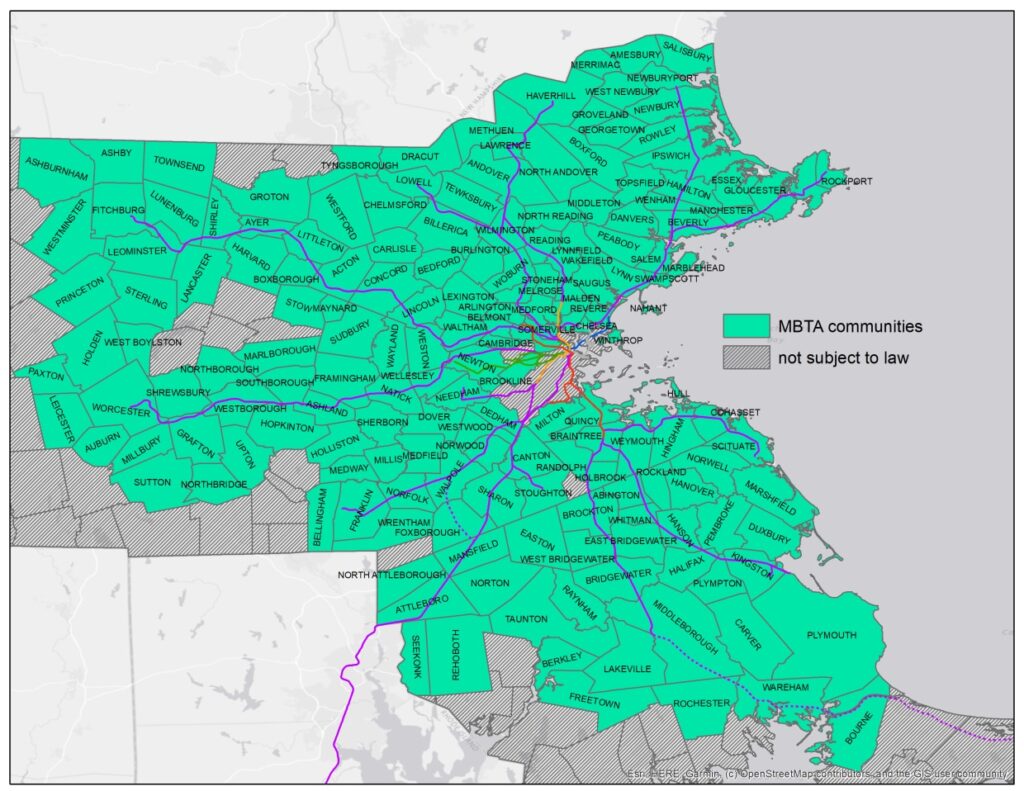What is Housing Choice?
This new state mandate says that each MBTA community “shall have a zoning ordinance or by-law that provides for at least 1 district of reasonable size in which multi-family housing is permitted as of right.”
This district must have a “minimum gross density of 15 units per acre” and “be located not more than 0.5 miles from a commuter rail station, subway station, ferry terminal or bus station”
If an MBTA community does not comply, it will not be eligible for certain state funds.
We encourage you to read the Globe article below which features commentary from RightSize Newton’s president, Randall Block and take the poll at the end of the article.
Map of MBTA Communities

Letters written to the Department of Housing and Community Development (DHCD)
Other Press Engagement:
Concerns about the sweeping legislation are outlined in this Commonwealth article by Charlotte Khan
On April 23rd, The Globe published an article on the new housing choice guidelines.
RightSize Newton President, Randall Block, wrote the following letter in response:
The Globe’s article on the mandatory zoning for MBTA communities (“Pushback against new law to spur housing”, April 24) misses important parts of the controversy. I spent days reading public comments on this program, and it is not just small towns that complain that they lack wastewater treatment or road and school infrastructure to handle the growth the new zoning would generate. Larger communities also raise objections. For example, Medford does not want to change its “dense suburban” character to “dense urban.” Brookline observes that the proposed zoning will have the effect of “mandating already dense communities to become much denser [while]…allowing low density communities to maintain their low density.”
Housing advocates claim that local officials’ fears are “overblown.” However, the zoning change creates a template for development in 175 cities and towns, and once adopted, it will be hard to modify. To suggest that the objections reflect a desire to restrict affordable housing is disingenuous since the most frequent criticism of the legislation is that it fails to encourage affordable housing and its main impact will be more market rate housing.
Instead of antagonizing cities and towns with a one-size-fits-all zoning mandate, the state should identify new sources of revenue to subsidize housing for people locked out of the housing market.

